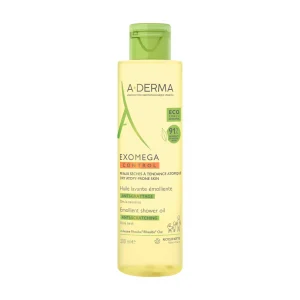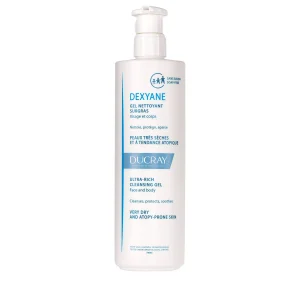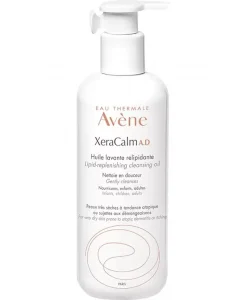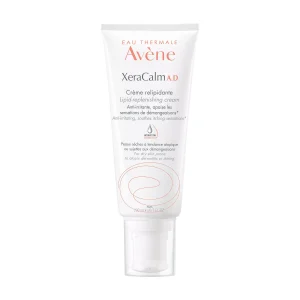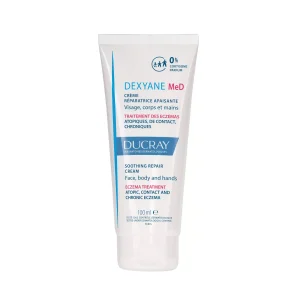
Eczema can affect many aspects of your life, including your work. This is particularly true if the eczema is severe or appears on the hands. The itching, burning and open, oozing sores that eczema causes can make it difficult to use your hands. During a flare-up, you may not be as productive as you’d like. You may not be able to perform all the tasks you normally would. In this article from The Dermo Lab, we’ve put together a comprehensive set of tips and tricks for overcoming the challenges of eczema in the workplace. Read on!
Which professions are most frequently affected?
Certain professions are more likely to come into contact with products likely to cause eczema, either because they are irritants or because they contain allergens. Manual professions are particularly concerned.
Here’s a list of the professions most frequently associated with occupational eczema:
- Hairdressers
- Healthcare personnel: hospital staff, nurses, dentists and dental staff
- Construction workers
- Cleaning staff
- Metal workers
- Food industry professionals: bakers, cooks
- Florists, gardeners
- Farmers
- Veterinarians
What challenges do employees with eczema face?
1- Physical Pain and Discomfort: During flare-ups, employees with eczema frequently experience physical pain and discomfort, including itching, burning, and inflammation. These symptoms may be distracting and interfere with one’s ability to concentrate on work-related tasks, which can lower output and performance.
2- Anxiety and Stress in the Workplace: Taking care of eczema at work can be mentally draining, which can exacerbate anxiety and stress. Employees may experience feelings of insecurity and self-consciousness as a result of worrying about how managers and other staff members will view their skin condition.
3- Effect on Productivity: Eczema flare-ups can cause schedule disruptions at work and necessitate time off for doctor’s appointments or symptom management. This may lead to missed deadlines and lower productivity, which would be detrimental to each worker’s performance as well as the effectiveness of the company as a whole.
4- Fear of Stigma or Discrimination: Redness, scaling, and lesions are some of the visible signs of eczema that can cause people to fear stigma or discrimination at work. Workers may have feelings of loneliness and exclusion if they fear judgment or treatment based on their skin condition.
5- Difficulty in Choosing Appropriate Clothing: Some employees who have eczema may find it difficult to find appropriate clothing that is both comfortable and does not worsen their symptoms. Wearing tight clothing or certain fabrics can irritate the skin, making it difficult to dress professionally while controlling eczema.
What ways are there to manage eczema in the workplace?
Here are some ways to make working with eczema as easy as possible.
1- Talk to your boss and colleagues
Not everyone is familiar with eczema. It’s important to talk to your boss about the severity of your condition and possible triggers, so that he or she can help you. For example, you may need to take time off work to attend medical appointments. You may also need to take sick leave if your eczema symptoms become too severe or painful for you to work.
Talking to your boss or colleagues can help you overcome social barriers and give you a sense of relief. During these conversations, you can also debunk common myths about eczema, such as contagion, unhealthiness or cure. Having a supportive boss and colleagues can help create a positive work environment.
2- Explain your physical difficulties at work
Wet jobs – such as healthcare, cosmetology, agriculture, construction, cleaning, animal handling or food production – are jobs that involve repeated hand washing and exposure to soaps or detergents, chemicals and wet materials. Working in damp environments has been shown to contribute to the development of hand eczema. A person with eczema may find their symptoms aggravated or triggered in such work environments. Simple measures, such as wearing gloves, can help relieve symptoms in the workplace.
Extreme temperatures can also pose problems for some eczema sufferers. Exposure to cold, dry weather or excessive heat, humidity or perspiration can sometimes worsen eczema symptoms. There may be an easy way to control your office or workplace environment to reduce eczema flare-ups at work.
3- Avoid triggers
If you don’t know what’s causing your eczema, talk to your doctor. He or she may even test you to find out if your allergies are the cause of your eczema.
Common eczema triggers include:
- Regular exposure to water (such as washing dishes or hands)
- Antibacterial products, cleaners or other products containing alcohol or solvents.
If you can, avoid triggers when you’re working. Keep them off your skin. Also, make sure that irritants don’t come into contact with your clothing, work equipment or work surface. If you must come into contact with irritating substances, wear thick vinyl gloves or neoprene gloves with a cotton lining.
4- Take care of yourself
A daily routine is one of the best ways to keep eczema at bay. It can also make your job easier.
- When washing your hands, use lukewarm rather than hot water. It’s also important to use gentle cleansers that are suitable for eczema-prone skin. This means choosing products that are fragrance-free and do not contain harsh soaps or surfactants.
Our selection of products:
A-Derma Exomega Control Emollient Shower Oil
Ducray Dexyane Ultra-Rich Cleansing Gel
Eau Thermale Avène XeraCalm A.D Lipid-Replenishing Cleansing Oil
- After washing your hands, blot them dry (instead of rubbing them with a towel or using a heated dryer) and apply a moisturizer immediately afterwards. Regular moisturizing is the cornerstone of eczema management. Opt for hypoallergenic, fragrance-free moisturizers to prevent skin dryness and maintain the skin’s protective barrier.
Our selection of products:
A-Derma Exomega Control Emollient Cream
Ducray Dexyane Anti-Scratching Emollient Cream
Eau Thermale Avène XeraCalm A.D Lipid-Replenishing Cream
- In case of eczema lesions and damage to the skin barrier, it’s best to apply a restorative cream that treats and promotes the disappearance of eczema lesions, limiting their reappearance.
We recommend the following cream, which relieves itching and reduces the intensity of signs of inflammation.
Ducray Dexyane MeD Soothing Repair Cream
- Wear eczema-friendly fabrics such as cotton, bamboo and silk.
- Wear sturdy vinyl, neoprene or leather gloves.
Thriving with eczema in the workplace
Managing eczema in the workplace comes with its own unique set of challenges. However, with the right strategies and support, it can be dealt with effectively. Key factors include open and honest communication with your employer and co-workers, adhering to a consistent skin care routine, and knowing your legal rights. These elements are essential to successfully managing eczema while maintaining a professional career.
With patience, resilience and self-care, you can overcome obstacles in the workplace and continue to excel in your chosen field!
Last Updated on March 6, 2024
